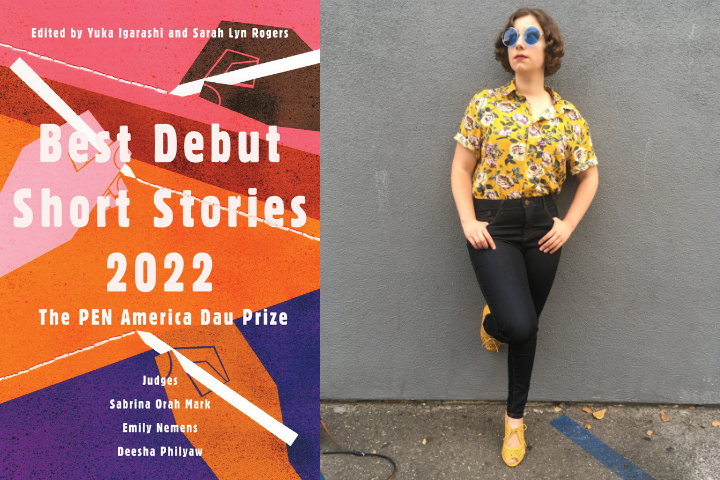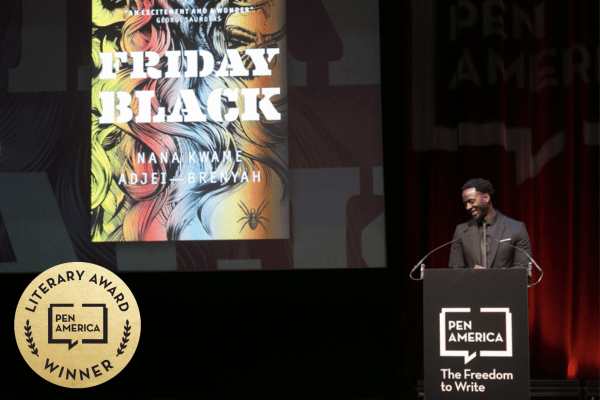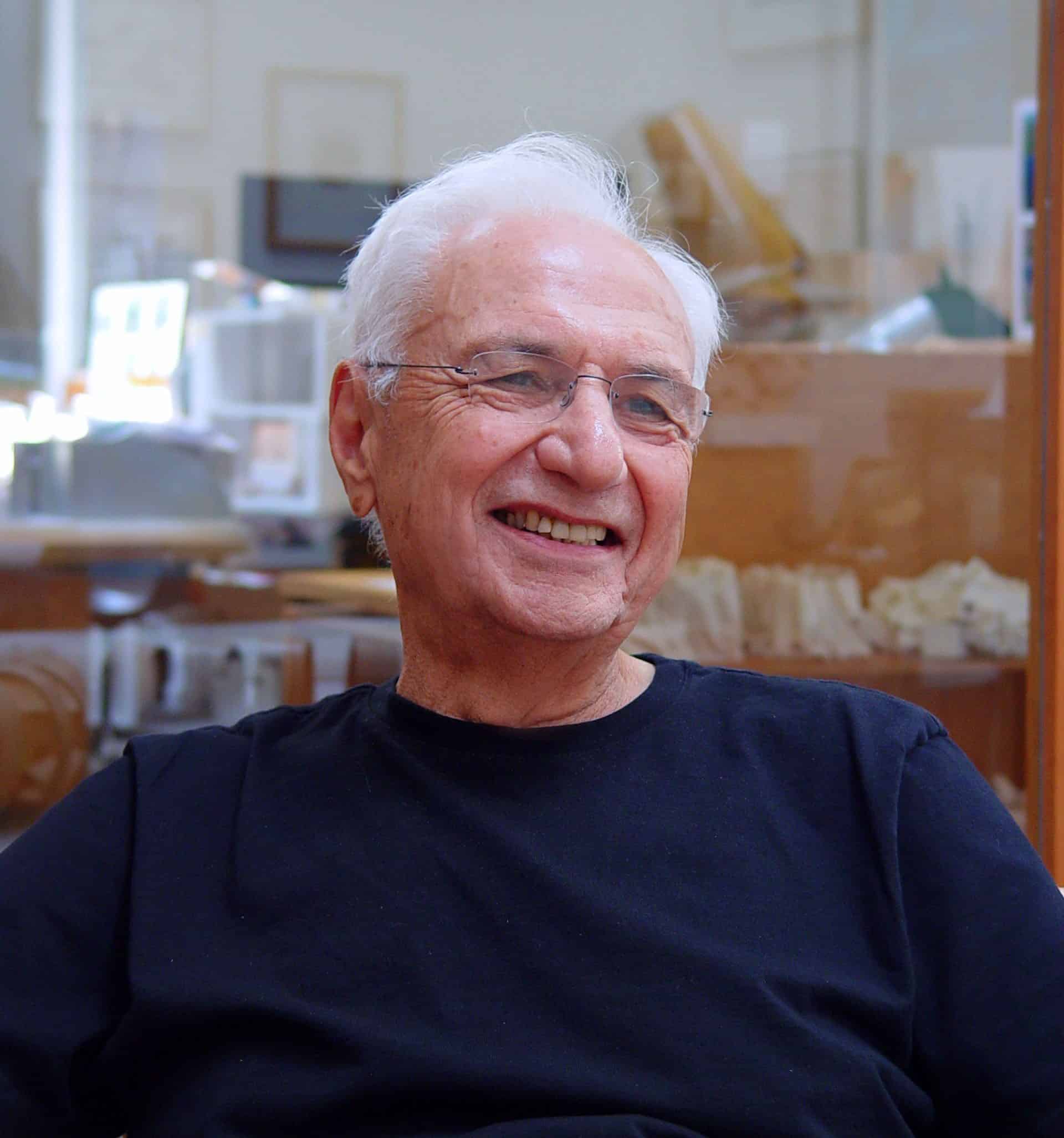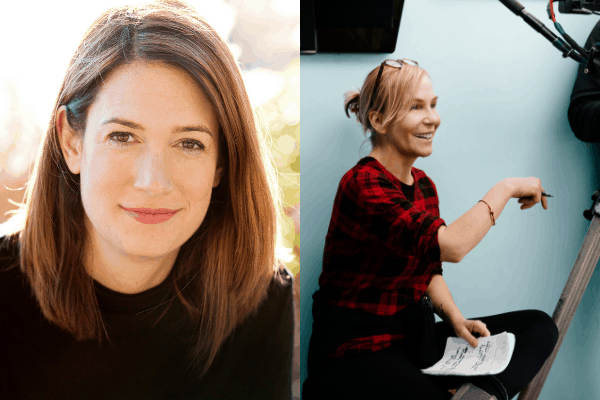
In the upcoming weeks, we will feature Q&As with the contributors to this year’s Best Debut Short Stories anthology published by Catapult. These stories were selected for the 2022 PEN/Robert J. Dau Short Story Prize for Emerging Writers by judges Sabrina Orah Mark, Emily Nemens, and Deesha Philyaw.
Emma Shannon (any pronouns) is a fiction author and playwright based in Baltimore, Maryland. They graduated from Johns Hopkins University with a BA in writing seminars and cognitive science. Emma had their first story published in Barrelhouse Magazine. It is receiving a reprint in Catapult’s Best Debut Short Stories 2022. When not writing, you can find Emma podcasting on the Moonshot Network, swing dancing, volunteering at the aquarium, or looking for frogs in the woods.
“Beat by Beat ” was originally published in Barrelhouse.
Here is an excerpt below:
On the nineteenth of April, 2012, at 6:54 a.m., Edwin is born. Two hours and three time zones away in Montréal, Canada, a Siberian squill flower (Scilla siberica) blooms to signify spring. The worm gets nervous and the red heart beats too fast, instilling the flower with the knowledge that Rome was never meant to exist. It has not yet figured out how these two events are related but continues to insist that somehow they are.
What advice would you share with aspiring writers?
In all honesty, I still think of myself as an aspiring writer, so this is probably the hardest question to start off with. I think as an aspiring writer it’s easy to get caught up in trends and try to create something to get on top of “what’s hot” in publishing. Trends are always changing, people are always going to have subjective opinions about art. It’s not important to write something you think every agent or editor or guy on the street is going to like—you’re never going to please everybody. Write for yourself. Write what makes you interested, something you’d like to read. Write a scene for a close friend that makes you say, “Oh, so-and-so is going to go NUTS when they read this part!” It’s easier to be motivated when you’re writing for yourself, and you’ll find yourself liking what you’re working on more as well.
What do you hope readers take away from your story?
There are a number of things to take away from this story depending on how you interpret it. I wanted it to be open-ended on purpose just for that reason. But no matter how someone interprets it, I want to leave them thinking about our place in the universe, forming connections, and finding meaning in places we may not think to look.
What inspired you to write this story? Where did the idea come from?
I like to joke that the worm spoke directly into my brain and told me to write this story. I was walking home one night in college after several hours of struggling to write a short story for class when the line “At the edge of the universe there is a worm, pale pink and glowing,” popped into my head. I thought “Yeah, sure, all right, that makes about as much sense as anything else,” and ran with it.
How has the Robert J. Dau Prize affected you?
I feel so much more connected to the realm of writing now. Obviously, the prize itself allowed me to take some time off of work to write, but the announcement of it really flung open the doors for networking with other writers. It’s helped me feel like a part of the community in a way where I’m more motivated and confident in submitting my writing. I’m more aware of different calls for submissions, I get to read new publications from authors I’ve interacted with now, and I’m less nervous about sending in a piece because I’m familiar with previous contributors. I’m going to a conference for the first time later this year, something I don’t think I would have had the gumption to do before the Robert J. Dau Prize pulled me hard and fast into the literary world. It’s honestly really exciting.
Your story contains both elements of spontaneity and simultaneously a kind of determinism. How did you go about writing this? How do those oppositions live together without contradicting each other?
The seemingly incongruent interconnection between spontaneity and determinism is almost like my thesis statement on the human condition. There’s no real reason for things to happen, they just happen in whatever spontaneous order they happen in. What makes these things important is the meaning we assign to them, no matter how arbitrary. Determinism exists in retrospect because we inherently have the drive to find connections. There’s no reason for you to have met your best friend, no reason for them to be your best friend, but you create those reasons and decide to give meaning to the web of connections leading you to that point, and that’s what makes it a beautiful thing.




